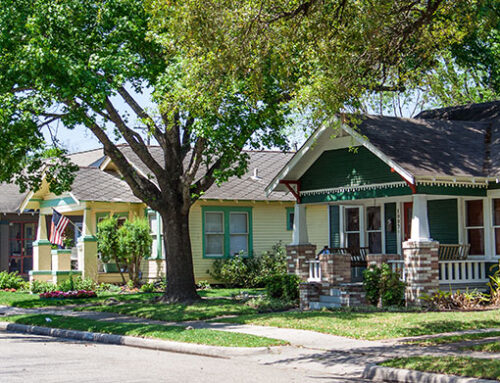
A cousin of mine was asking about getting into the real estate wholesaling business. He took me out to dinner to pick my brain and asked what the key was. I leaned back, contemplated for a minute, and told him that the key was to “sell a house for more than you bought it.” It wasn’t really a great dinner, to be honest.
But, while that is the most basic element, it’s obviously a lot more complicated than that. In order to get started wholesaling real estate, you need to know a lot of things. You need to understand how to find houses, how to strike a deal, and how to turn it around to another buyer at a price that works best for you.
Wholesaling isn’t easy. There are tight margins, tight timelines, and a host of interpersonal relations that you have to navigate. That’s why, if you are considering this, you need a thorough real estate wholesaling business plan to prepare you for the challenges and give you a chance to achieve your goals.
Understanding Real Estate Wholesaling
Real estate wholesaling is similar to the fix-and-flip strategy—only without the actual fixing. Basically, you’re going to buy a distressed property from a homeowner who is looking to sell quickly, and then turn that property around to an investor-buyer who will be doing to fixing and flipping. The result of this is that you’ll sell the property for less than you would if you did the rehab work but you also don’t have to spend the money to fix it.
This means that you have to buy the house at a price point that is low enough for you to make money when you sell it to someone who is going to fix it up. You also have to sell it at a price that is low enough for it to make sense for them to buy.
Sound simple enough? In theory, it is simple. In practice, it can be more complicated. Let’s see why.
The Complications of Real Estate Wholesaling
The interesting, and for the right kind of person exciting, thing about real estate wholesaling is that it combines the need for marketplace knowledge with basic human psychology. Breaking it down, the process is:
- Finding an area where houses are underpriced based on their potential
- Understanding if fix-and-flippers might also see it that way (remember, they are your end-buyers)
- Locating a distressed home in that area where the owner might not be able to wait until the market catches up to projections
- Making the homeowner a fair offer that is still low enough for you to have a margin
- Connecting with a buyer
- Sealing the deal at a price point that you have a reasonable return and they will be able to turn a profit when they sell
It’s easy to see this as a series of steps, of course, but they are all intertwined. When vetting leads, you have to understand how much you will be able to spend based on what you think a fix-and-flipper will be able to spend.
For example, let’s say you’re looking at up-and-coming neighborhoods in Milwaukee. You find a property in Silver City that looks like it could use some love and find out the owner is looking to sell. To make the math simple, you figure that this property, if rehabbed, could go for $300k.
Now, the property itself isn’t worth $300k because of disrepair. And, because you aren’t fixing it, you can’t sell it for $300k. The fix-and-flipper who buys it from you has to make a profit after her hard work and expenses. She’s going to put $100 of work into it, so she will want to buy it for significantly less than $200k.
All of that means YOU have to buy it for significantly less than that. But, you still have to make an offer that is fair to the owner. If you offer $50, you’ll get the door slammed in your face.
Complex? You bet—and that’s why you need a solid business plan.
The Key Elements of Your Real Estate Wholesaling Business Plan
In order to act quickly, you need a business plan in place. Here are some of the key elements to think through.
Identify the Right Areas
In this business, you have to be able to find the right houses in the right neighborhoods that can make you a profit. That isn’t as easy as it seems. If you’re in New York, and looking to invest in, say, Brooklyn, you can’t just think “Well, Dumbo is pretty happening, I’ll buy there.” It’s already expensive and everyone is trying to buy there. You need to determine which neighborhoods are up and coming.
Identifying the right areas is key to your business plan. I find it is helpful to focus on a limited number of cities or neighborhoods in bigger cities. That way, you can develop more knowledge about these markets with your ear closer to the ground.
Have a Source of Financing
It’s critical to have capital. This is a business that demands liquidity. If you have a potential house to buy, you have to find a way to get the money needed to buy it—quickly. You might not always have tens of thousands of dollars at hand. That’s why your business plan needs to include a way to get cash when you need it. Sometimes that can be a self-directed IRA. More often than not, this will involve a hard money loan. Do you know where to get them? Do you understand what rates will work for you?
Get Qualified Leads
So, you have the right areas, but now you need the right property. You need to find a homeowner who needs to sell quickly and who isn’t being flooded with offers. This could be a person facing foreclosure. It could be someone who just got divorced and needs to sell to split their assets easier. It might even be someone whose house is falling apart and they can’t afford the repairs. There are any number of reasons why someone wants to sell fast.
Your plan needs to have a lot of ways to get these qualified leads. Your strategies might include developing a social media plan, scouring the listings, or even going door-to-door and asking people if they are looking to sell. But, being part of a network where people buy and sell in volume is crucial to getting the best leads. And, the better the network, the better your business can possibly be.
Understand How To Make the Right Offer
In our example above, I did some neat-and-clean arithmetic. But life is rarely, if ever, that neat-and-clean. Your offer will be a complicated mix of current value, projected future value, your own operating expenses, how long you think it will take to sell, and your ability to sell it at that price.
And, of course, you have to be fair to the seller. This is a person who needs to sell for a reason and it isn’t always a happy one. But, they know if they are being taken advantage of. You have to make an offer that is right for them.
There are ways to do this, of course. There is basic math, but that math has to be matched with empathy. You can explain how you’re doing all the work of the purchase, helping them avoid lawyers or real estate agents and all those attendant fees. You help them by quickly taking the property off their hands and giving them cash. You understand their situation and work with them—not against them.
The main rule in this business is to treat people fairly. You’ll find that it works.
Know How to Sell Quickly
In the real estate wholesaling business, you go from buyer to seller overnight. You need someone to buy from you, fast. The longer you hold onto a property, the more your holding costs eat into your margins. And, you don’t just want to put up a ‘for sale’ sign. You want to find a buyer who is ready to move as fast as you.
Finding a fix-and-flipper to buy your house can be challenging. It helps to be part of a network. Use the same ones you used when buying.
When you are part of these networks, it is important to understand the way they communicate. Do you list your house on their Facebook page? Do they have a mailing list? Are there sites where you can target your buyers?
Always have a plan to sell before you buy. That’s probably the most important advice I can give you.
A Better Way To Work in Wholesale Real Estate
Having a real estate wholesaling business plan is crucial. Know how much you can afford, and know how to sell. These have to work hand-in-hand, or else your business plan will be much harder to execute. Luckily, there is a way to tie everything together.
For me, everything changed when I became an independently owned and operated HomeVestors® franchisee. Frankly, it changed my real estate wholesale business. For one thing, I got personalized training and mentorship. Through this, I learned a lot more about identifying great neighborhoods, finding houses, and closing the deal. I learned how to better understand my own business plan. In short, I got better.
I also got qualified leads and financing options. See, people who need to sell fast know who to call: the “We Buy Ugly Houses®” team. Then, I get the qualified lead. I can go to the house and talk to a person who is ready to sell. When we agree on a price, I have access to a proprietary hard money portal. All I do is enter the information about my deal and I get multiple offers from lenders, letting me pick whichever one makes the most sense for my investment strategy.
Finally, I am connected with end-buyers. DealVestors® connects me with a network of real estate investors looking for their next project. They love it because they don’t have to go around looking for leads. I love it because I can find someone as motivated to buy as I am to sell. This job is about connections, and becoming a franchisee has opened up the world to me.
If you want a chance to make your wholesaling business plan work as smoothly as mine, request information about becoming a franchisee. That’s advice that won’t even cost you a dinner.
Each franchise office is independently owned and operated.
Contact
"*" indicates required fields





